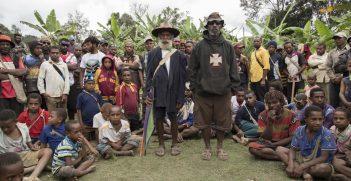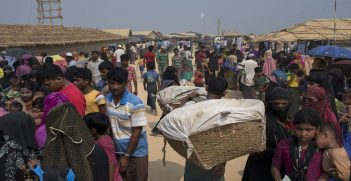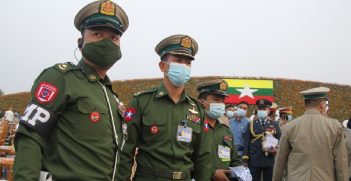Myanmar: A Story of a Mother Revealing the Significance of Family Connections

Although the ICRC’s efforts to resume its prison visits in Myanmar are ongoing, the organisation continues supporting detainees and their families. Being able to maintain contact helps ensure the well-being of both family members and those behind bars, reminding them that hope exists.
A mother’s love for her children is unparalleled and incredibly potent.
Daw Kyi Kyi, a nearly 60-year-old mother, comes from a remote village in the central part of Myanmar, living a modest life; she does not even know how to make a phone call. Yet, she was courageous enough to travel over 600 kilometres to see her daughter, who is officially being detained in a prison far from her home.
“All I want is to see my youngest daughter’s face, just to ensure that she is healthy,” said this mother of three, who also tragically lost her husband a few months after her daughter was sentenced.
Daw Kyi Kyi lives in a village in Magway Region, right in the heart of the country. Her daughter, following her sentencing, was relocated from her initial place of detention, and is currently placed in a prison in Mon State, located in the South-Eastern part of Myanmar. Covering the travel costs and other expenses is not easy for this elderly mother; however, she makes sure to visit her daughter wherever she is and whenever she can.
Now, following a recent visit, Daw Kyi Kyi is at the office of the International Committee of the Red Cross (ICRC) in Yangon, hoping that her burden will be lightened as she applies for the Family Visit Program. The ICRC provides a cash grant to family members who wish to visit their loved ones held in distant prisons.
In fact, she was initially scared about coming to the office as she had little information about the organisation. She only decided to give it a try because another mother, whose daughter is in the same prison as Daw Kyi Kyi’s daughter, informed her about the program. She felt a great sense of relief upon understanding the nature of the ICRC and how it could help her cover the travel expenses.
“On average, on a weekly basis, we receive around 10 family members applying for our program who want to visit their loved ones in prisons,” said Yu Zana, ICRC staff member responsible for the Family Visit Program.
“By talking to them, we can understand how much they suffer from family separation. We deduce that both the family members and their loved ones behind bars are struggling. Knowing that my work creates opportunities for these people to stay in touch with their families inspires me to keep doing what I do,” added Yu Zana.
While the ICRC’s efforts to resume its prison visits in Myanmar are ongoing, the organisation continues supporting detainees and their families.
“At the moment in Myanmar we have two programs that we offer to families of people who are formally detained. These programs are: the Family Visit Program and the Safe Return Home Program for released detainees,” explained Ene Tammy Abah, who is in charge of the Restoring Family Links Program at the ICRC Myanmar Delegation. “The family is one of the key units of every society and when families are separated, it creates a lot of stress for them. Our program helps to reduce that anxiety,” she said.
During the Covid-19 pandemic, family visits to prisons were suspended but have recently been reinstated by the authorities. The ICRC provides cash support for family members to enable them to visit their detained loved ones or drop parcels for them.
“I saw her face. She is healthy and happy. I gave her some snacks, dried food, clothes, and some money,” Daw Kyi Kyi recalled happily. This is her third visit to her daughter and her first time coming to the ICRC.
Being able to maintain contact helps ensure the well-being of both family members and those behind bars. Additionally, the ICRC provides cash assistance for released detainees, facilitating their journey back home.
In 2023, the ICRC in Myanmar supported 669 families for prison visits and 3,368 individuals upon their release. Furthermore, the ICRC informed the families of 324 individuals of the whereabouts of their relatives.
The stories of the people and changes in their lives deeply inspire both Ene and Yu Zana in their work. “Observing the happiness in families when they reconnect is incredibly rewarding. It reminds them that hope exists and assures them of their loved one’s well-being. These moments truly impact their lives,” said Ene.
Daw Kyi Kyi, as she leaves the ICRC office with a bright smile and eyes full of hope, said, “first time I saw my daughter’s face, I cried. She said she was fine, but as a mother how could I hold back my tears? But the second time, I could control my emotions. I am going to visit her again very soon.”
The Name Daw Kyi Kyi has been changed to protect the identity of the individual.
Thaw Tar Swe Zin is a Local Media Officer for the International Committee of the Red Cross, Myanmar.
This article is published under a Creative Commons Licence and may be republished with attribution.





